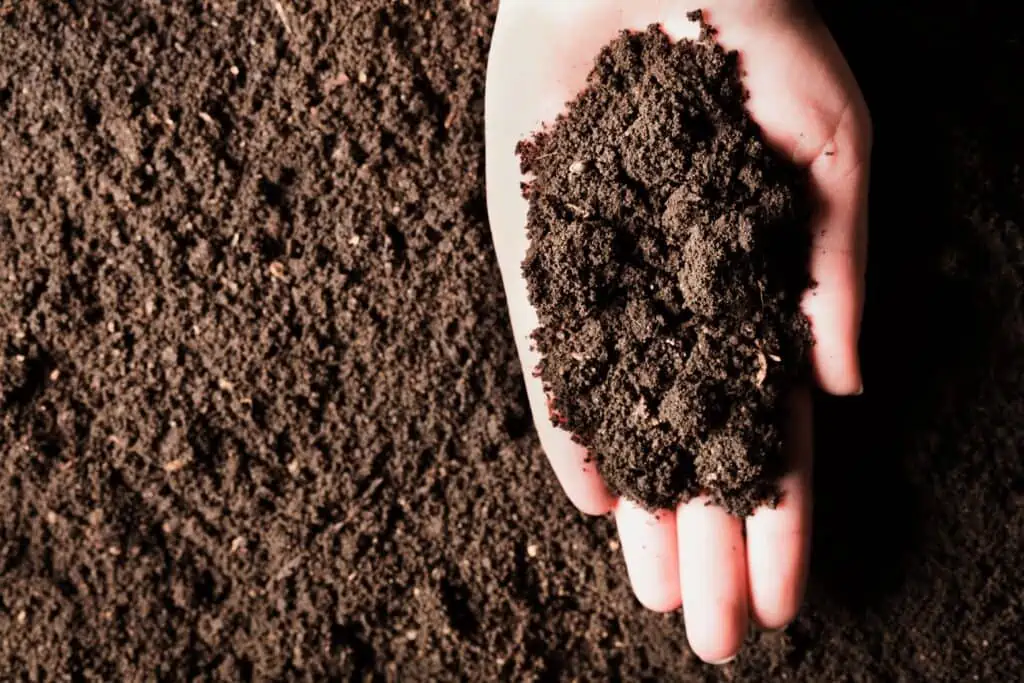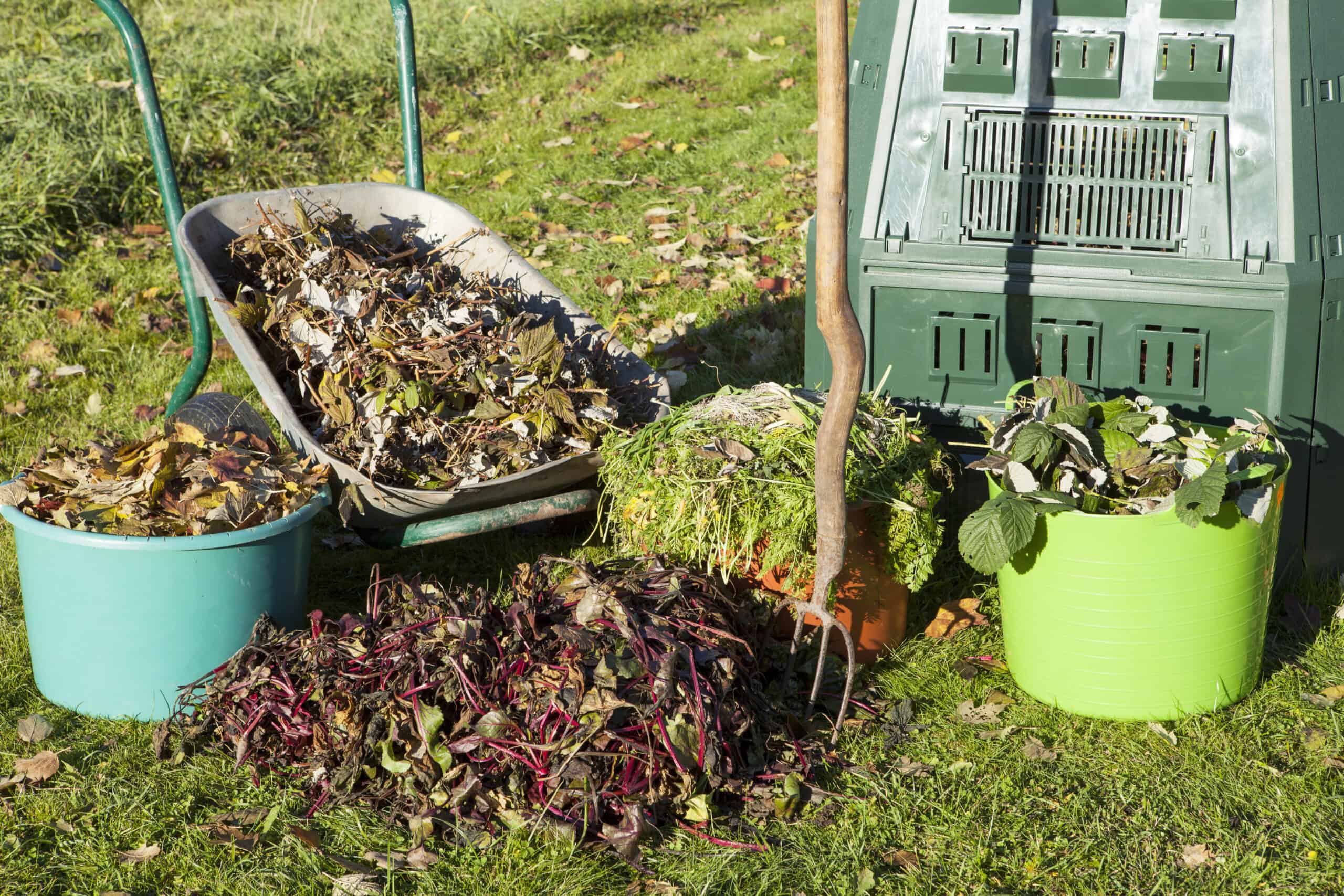As an Amazon Associate I earn from qualifying purchases.
When I first got a compost tumbler I checked on it every single day. Sometimes multiple times per day.
It didn’t take long until I came to the conclusion that composting is just like baking cookies: nothing happens while you’re watching.
However, if your compost isn’t breaking down (or isn’t breaking down as fast as you want), there are several things you can do to either fix your tumbler/pile or speed up the process.
The most common that your compost isn’t breaking down is because you’re expecting results unrealistically fast. If you are aware of the timeline and still have slow compost you can rectify this by fixing your C/N ratio, watering your pile, and keeping it aerated.
The reality is, your compost is breaking down. Even if you just threw some stuff on the ground with no thought of ratios or caring for it as compost it would eventually break down. What people mean when they say their compost isn’t breaking is that it’s not decomposing quite as fast as they expected or would like.
So, while there may be reasons that your compost isn’t composting, what we likely need is a method that will speed your composting up. So let’s jump into the full list of problems and the things we’re going to do to fix them.
5 Reasons Your Compost Isn’t Breaking Down
1. Your Compost Needs More Time
Many new composters become very concerned about their compost when it just hasn’t had enough time to decompose. Think of things in nature, it can take years and years for things to break down and you’re getting antsy after a couple of weeks. If you have everything else down, give your compost some time (like a couple of months) to see how much progress it makes.
2. Your Green/Brown Ratios Are Off
Microbes in your compost rely heavily on nitrogen to form their proteins and weave them into structures. If your pile is too rich in carbon (brown materials) you will struggle to generate enough microbial activity and ensuing heat to break things down. Giving your pile a shot of nitrogen in the form of grass or other greens can be just what it needs to speed up.
3. Your Compost Is Too Dry
Microbes in your compost rely on water to move around and perform their decomposition tasks. Without it, their ability to work on your kitchen scraps and yard waste is diminished to near zero. If you keep your pile nice and damp it will foster the growth needed for faster compost.
4. You Have Not Reached “Critical Mass”
If you have a very small pile or tumbler, don’t expect compost to be made quickly. It takes around a square meter of material for a pile to get “hot” and become self-sufficient in breaking down. If you don’t have enough material to get your pile to heat up you’re in for a much longer slog in the composting game.
5. Your Need To Aerate More
Another common reason that your compost is breaking down is the lack of air. The most beneficial bacteria are aerobic, meaning they rely on air to do their job. If you don’t aerate or turn your pile regularly you start to favor anaerobic bacteria which are much slower as they are trying to ferment your pile into compost. This can also lead to your compost smelling.
How Long Does It Take For Compost To Finish?
If you’ve mastered the 5 items above and get your compost pile really cooking, it can still take up to 3-4 months for your compost to be ready to use. Even in that time frame, you might have pieces of larger or harder-to-break-down scraps left that you have to sift out and add to the next batch.
If that’s too long for you, you can take some of the load off of the microbes and do more of the decomposition yourself. Manually breaking up things that you’re going to add to your compost pile or bin will prevent you from wondering why your compost isn’t’ breaking down. Smaller pieces have more surface area for microbes and weathering to work on and so break down much more quickly.
How Will I Know When My Compost Is Finished?

Finished compost has an earthy smell and a homogenous texture. If you let it “cook” to completion it will have no recognizable chunks and will look like dark loamy dirt.
That’s not to say, however, that you can’t use it before then. If you have too many scraps and want to start another tumbler load, for example, you can till unfished compost into your soil where it will continue to break down (albeit over a much longer time period).
Conclusion
At the end of the day, your compost not breaking down is usually a simple problem to solve. After all, if you did absolutely nothing to your compost, eventually it would decompose. Mother nature has been doing it for millions of years. However, implementing the above fixes should have your pile cooking in no time and all and soon you’ll be enjoying your fresh homemade compost.

